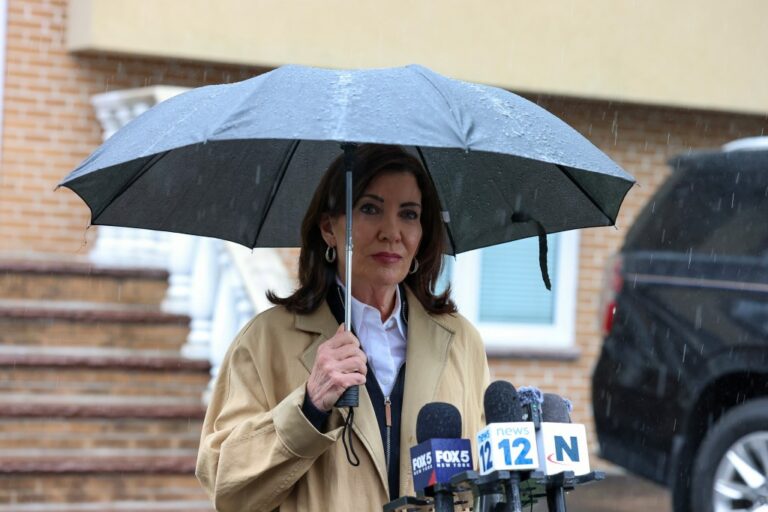New York Governor Kathy Hochul is set to deliver a significant victory to businesses that have been pressuring her to pay off their billions of dollars in unemployment-insurance debt. However, she plans to do so by using state reserves, rather than the federal COVID-19 relief funds that the state received.
The state still owes around $7 billion in debt from the pandemic, which has been a burden on employers, particularly small businesses. They have been paying extra penalties and costs into the unemployment insurance fund to help pay down the debt. Hochul announced on Monday that the state would cover this debt as part of the $254 billion state budget deal.
“This has created an incredible burden on our employers, our small businesses in particular, who’ve been paying extra penalties and costs into the unemployment insurance fund, and I want to alleviate that,” Hochul told reporters. The deal will also increase benefits for people on unemployment, which had been paused while the debt was still owed.

New York State AFL-CIO President Mario Cilento welcomed the move, stating that “increasing the maximum unemployment insurance benefit and addressing the unemployment trust fund deficit are critical steps toward supporting unemployed workers struggling to make ends meet while providing relief to employers.” The maximum benefit, which has been stagnant at $504 per week since 2019, will be increased.
Heather Mulligan, president and CEO of the Business Council, expressed gratitude on behalf of businesses across New York State, saying they are “grateful to finally be relieved of this multi-billion-dollar burden that has served as an added tax on all our employers for the past four years.”
State Assembly Speaker Carl Heastie, who has been pushing to pay off the debt, estimated that the actual cost could be upwards of $8 billion. The funds will come from one of the state’s reserve funds, a move that Hochul had previously ruled out to protect the state’s fiscal stability.

Hochul’s decision comes as she faces potential political challenges next year, including Republican challengers and a possible primary challenge from within her own party.


